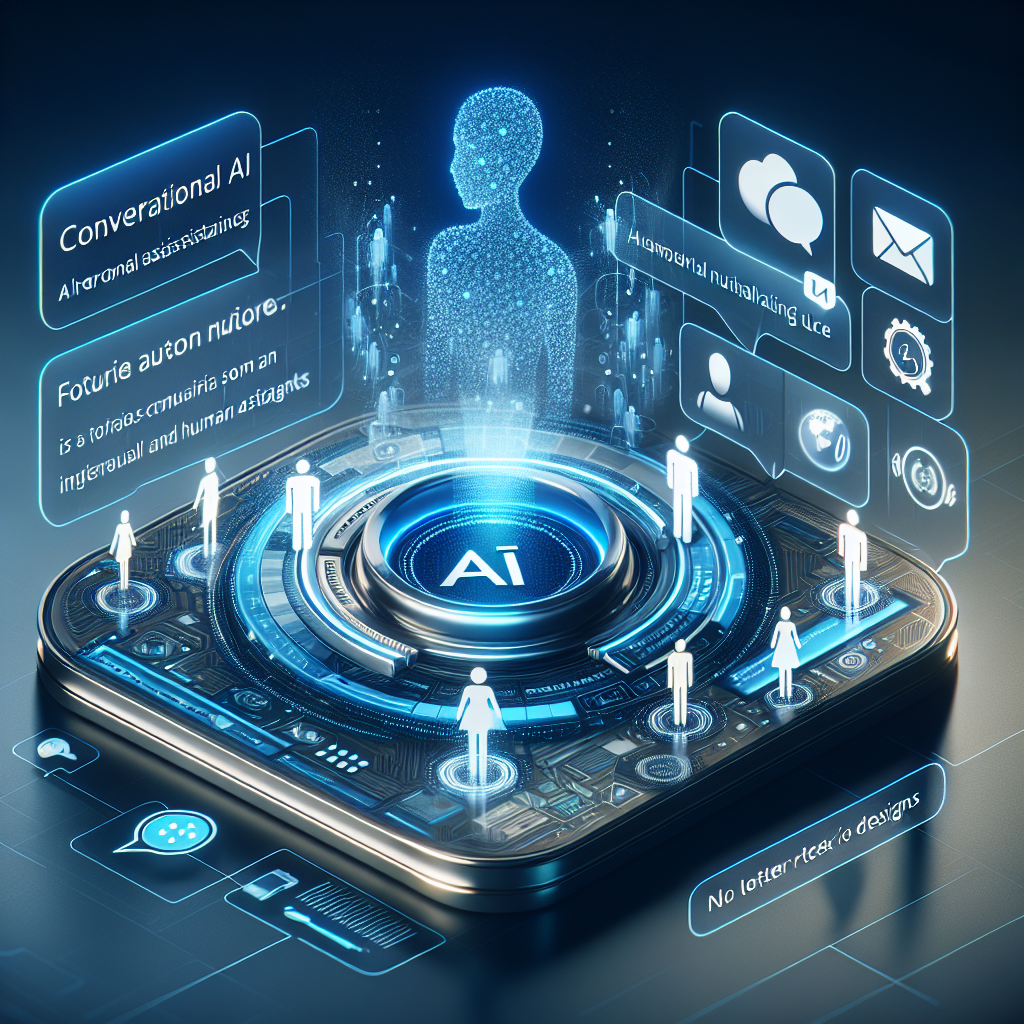Conversational AI: The Future of Personal Assistants
In recent years, we have seen a significant advancement in artificial intelligence technology, particularly in the field of conversational AI. Conversational AI refers to the use of artificial intelligence to enable machines to understand and interact with humans in natural language. One of the most notable applications of conversational AI is the development of personal assistants, such as Siri, Alexa, and Google Assistant, which have become an integral part of our daily lives.
The rise of conversational AI has transformed the way we interact with technology. Gone are the days of typing commands into a computer or smartphone – now, we can simply speak to our devices and they will respond with helpful information or perform tasks on our behalf. This seamless and intuitive interaction has made personal assistants a popular tool for a wide range of tasks, from setting reminders and answering questions to controlling smart home devices and ordering groceries.
The Future of Personal Assistants
As technology continues to evolve, the capabilities of personal assistants powered by conversational AI are only expected to grow. Here are some of the key trends that we can expect to see in the future of personal assistants:
1. Improved Natural Language Understanding: One of the key challenges in developing conversational AI is enabling machines to understand and respond to human language in a natural and meaningful way. As AI algorithms become more sophisticated, personal assistants will become better at understanding context, nuances, and emotions in human speech, leading to more accurate and personalized responses.
2. Multi-Modal Interaction: In addition to voice commands, future personal assistants are likely to support multi-modal interaction, allowing users to interact with them through a combination of speech, text, gestures, and even facial expressions. This will enable a more seamless and intuitive interaction experience, making personal assistants even more versatile and user-friendly.
3. Personalization and Context Awareness: Personal assistants of the future will be able to learn from users’ interactions and preferences to provide more personalized and contextually relevant responses. By analyzing user data and behavior, personal assistants will be able to anticipate users’ needs and proactively offer suggestions and recommendations, making them even more valuable and indispensable.
4. Integration with Third-Party Services: Personal assistants are already integrated with a wide range of services and applications, from weather forecasts and news updates to music streaming and ride-sharing services. In the future, we can expect personal assistants to become even more integrated with third-party services, enabling users to seamlessly access and interact with a wide range of services through a single interface.
5. Enhanced Security and Privacy: As personal assistants become more integrated into our daily lives, ensuring the security and privacy of user data will become even more critical. Future personal assistants are likely to incorporate advanced security features, such as end-to-end encryption and biometric authentication, to protect user data and ensure user privacy.
Frequently Asked Questions
Q: How does conversational AI work?
A: Conversational AI works by analyzing and processing human language input to understand the user’s intent and provide relevant responses or perform tasks accordingly. This is achieved through a combination of natural language processing (NLP), machine learning, and deep learning algorithms that enable machines to understand and generate natural language.
Q: What are some popular personal assistants powered by conversational AI?
A: Some popular personal assistants powered by conversational AI include Siri (Apple), Alexa (Amazon), Google Assistant (Google), Cortana (Microsoft), and Bixby (Samsung). These personal assistants are integrated into various devices and platforms, such as smartphones, smart speakers, and smart home devices.
Q: How can personal assistants benefit users?
A: Personal assistants can benefit users in a variety of ways, such as:
– Saving time: Personal assistants can help users perform tasks more efficiently, such as setting reminders, sending messages, or making reservations.
– Providing information: Personal assistants can answer questions, provide recommendations, and offer helpful information on a wide range of topics.
– Controlling smart home devices: Personal assistants can control smart home devices, such as lights, thermostats, and security cameras, through voice commands.
– Assisting with productivity: Personal assistants can help users stay organized, manage their schedules, and prioritize tasks to enhance productivity.
Q: How can businesses benefit from conversational AI?
A: Businesses can benefit from conversational AI in various ways, such as:
– Improving customer service: Conversational AI can be used to provide personalized and efficient customer service through chatbots and virtual assistants.
– Enhancing user experience: Conversational AI can help businesses create more intuitive and engaging user experiences through voice interfaces and natural language interactions.
– Automating tasks: Conversational AI can automate routine tasks, such as data entry, customer inquiries, and appointment scheduling, to free up human resources for more strategic activities.
– Gaining insights: Conversational AI can analyze user interactions and feedback to gain valuable insights into customer preferences, behaviors, and trends.
In conclusion, conversational AI is poised to revolutionize the way we interact with technology and personal assistants. With advancements in natural language understanding, multi-modal interaction, personalization, integration with third-party services, and security and privacy, the future of personal assistants powered by conversational AI is full of exciting possibilities. Whether you are a consumer looking for a convenient and efficient way to manage your daily tasks or a business seeking to enhance customer service and user experience, conversational AI has the potential to transform the way we engage with technology and each other.

